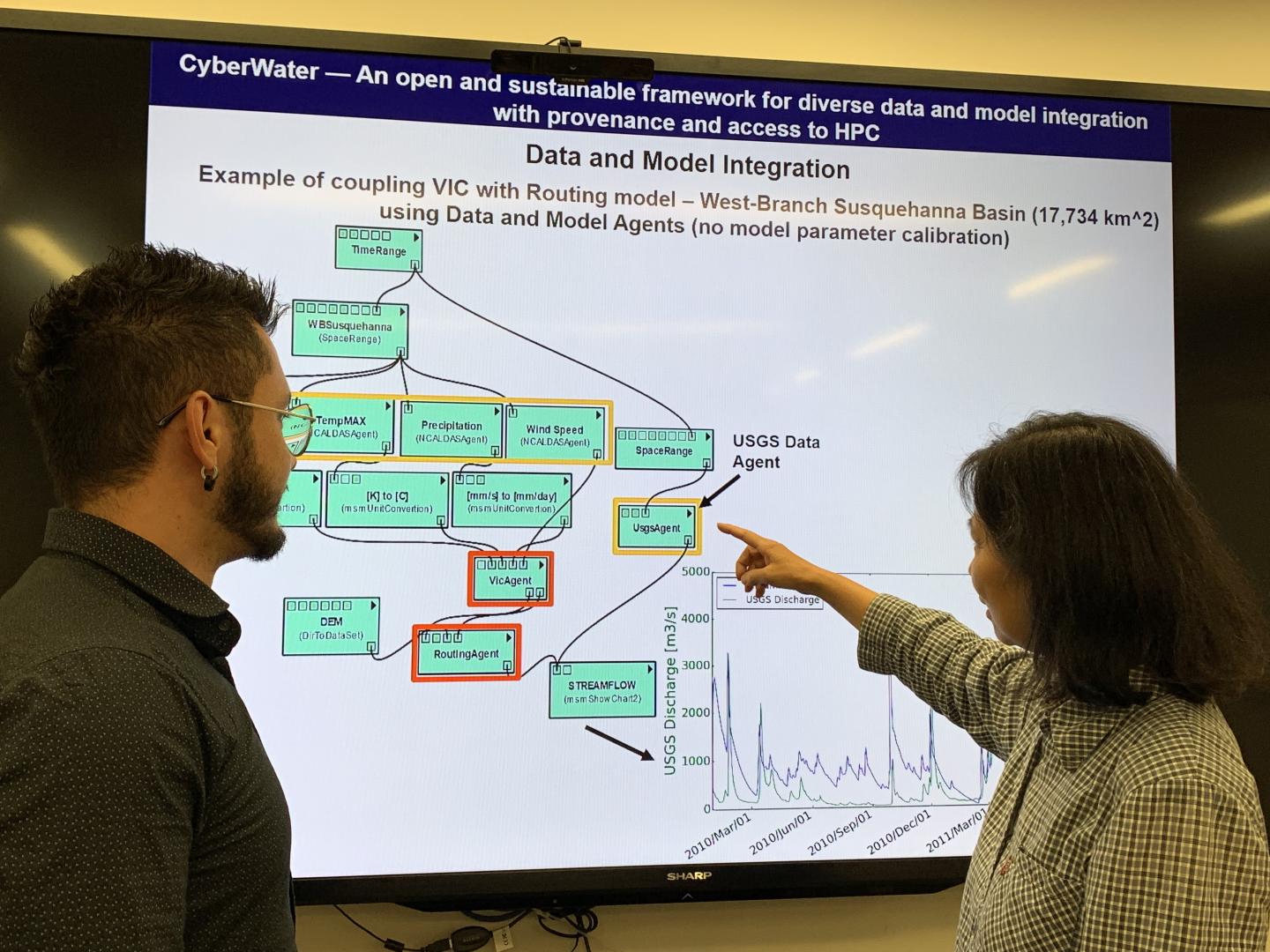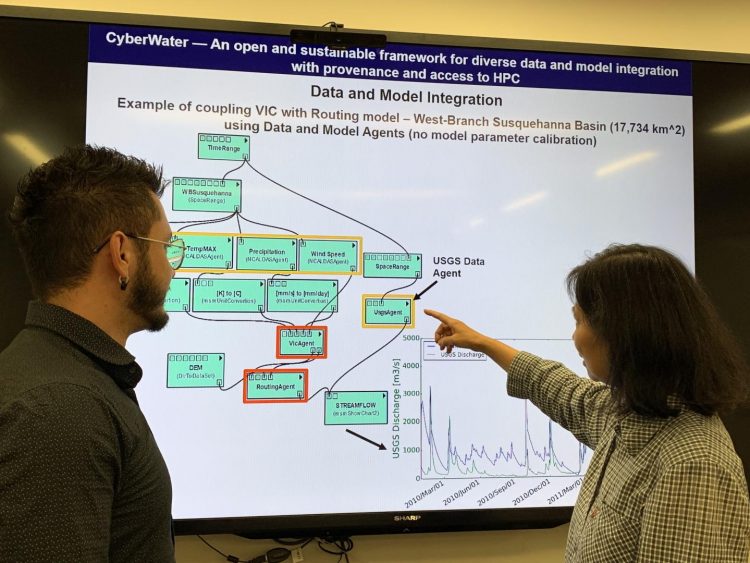Research team led by Pitt receives more than $1.3 million to develop ‘CyberWater’ modeling framework

Credit: University of Pittsburgh
PITTSBURGH (Oct. 1, 2019) — Understanding the earth’s water systems is a complicated endeavor. Factors like climate, air and water quality, ecosystem, droughts, erosion, sediments and the impact of human activity need to be taken into account when creating a model that would accurately predict, for example, how the scale and frequency of floods and droughts will be affected by climate change in the coming years.
Yet such a model would require tremendous amount of valuable and diverse data that are not always readily available; specialized models from across diverse disciplines; high-performance computing (HPC) resources to develop integrated model simulations and store the massive outputs; and a sizable group of researchers to orchestrate it.
Now, a national, cross-disciplinary team of researchers, led by Xu Liang, professor of civil and environmental engineering at the University of Pittsburgh Swanson School of Engineering, has received a combined $1.3 million from the National Science Foundation to create a new cyberinfrastructure framework that can build such a model, with $437,232 designated for Pitt.
CyberWater, an open framework of cyberinfrastructure, will enable easy integration of diverse data sets and models for investigating water resources and climate-related environmental issues. It will allow users to integrate many different models without the need for coding, and it will enable reproducible computing and seamless, on-demand access to various HPC resources.
“Understanding environmental issues, like flooding, depends on so many factors–topography, soil, changes in land cover and vegetation, human activity, and more,” says Liang. “Critical questions like this one can only be answered by looking at all these factors and how they interact, but before CyberWater, they couldn’t easily be considered together without the benefit of a large team of researchers from different disciplines, working together over multiple years.”
The new cyberinfrastructure framework will allow scientists to discover, access and use diverse sets of data, and link that data to multiple models at once. The user can then assess and evaluate how the models interact and, ultimately, test comprehensive hypotheses and alternate process representations using the coupled models.
Liang will work with a team of experts to create this modeling platform: computer scientists and cyber experts from Indiana University-Purdue University Indianapolis, Indiana University, and Ball State University; climate scientists from North Carolina State University; and hydrologists from Iowa University and the Consortium of Universities for the Advancement of Hydrologic Science, Inc. (CUAHSI).
The grant, titled “Collaborative Research: CyberWater–An open and sustainable framework for diverse data and model integration with provenance and access to HPC,” will continue through 2022.
###
Media Contact
Maggie Pavlick
[email protected]
Original Source
https:/





